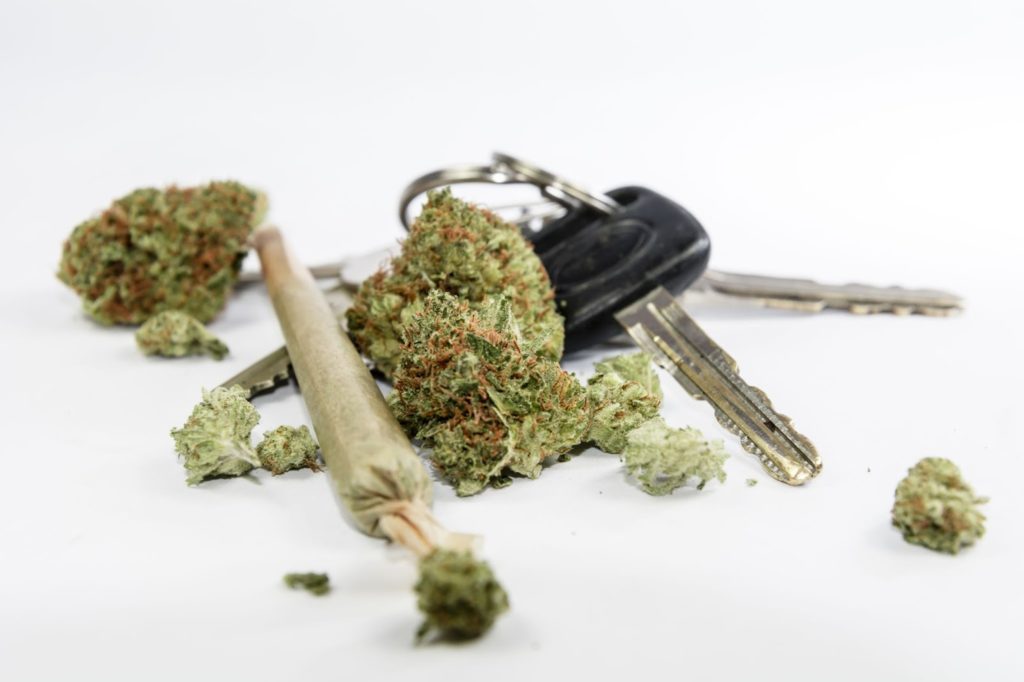There are two distinct ways in which you may wind up facing a charge of driving under the influence in Utah. Unlike a charge of driving while intoxicated, which means authorities believed you were drunk driving, a DUI charge means authorities suspect you are under the influence of either a controlled substance, such as marijuana, or a metabolite of a substance.

Utah’s Marijuana DUI Law
You may face a marijuana DUI, rather than an alcohol DUI, if one of the following occurs.
- Police officers believe you are under the influence of a drug to the point where it makes you incapable of safely driving a vehicle
- Police officers believe you were operating a motor vehicle with any measurable controlled substance or metabolite of a controlled substance in your body.
In other words, Utah upholds a “zero tolerance” law when it comes to driving under the influence of marijuana. This is controversial because it means you may face a marijuana DUI charge and a marijuana DUI case even if authorities do not believe you have marijuana impairment or marijuana intoxication preventing you from driving as you normally would.
You may also face a DUI marijuana as a medical marijuana patient. Possessing a valid Utah medical cannabis card does not make it legal for medical marijuana users to drive under the influence of marijuana.
Proving Someone Is Under the Influence
Part of the reason Utah has a zero-tolerance policy for drugged driving is because it is difficult to determine a driver’s level of impairment when alcohol is not the issue. While there are breath test devices that assess a driver’s level of alcohol impairment compared to the legal limit during a field sobriety test, there are no such devices or tests for cannabis consumption or THC concentration.
Also, complicating matters is the fact that marijuana impacts users differently. For example, someone who rarely uses marijuana may find that using cannabis hinders their ability to drive far more than it would a regular marijuana smoker. To get around this, the state enacted strict DUI laws, meaning you could face a marijuana DUI even if you do not have specific THC levels, urine test results, or the substance is impairing your ability to drive.
Potential Penalties
The penalties you may face after a DUI marijuana or metabolite DUI are considerable. A first DUI offense is typically a Class B misdemeanor. With this type of drug DUI conviction, expect to face the following penalties:
- Up to six months in jail
- Fines as high as $1,000
- 120-day driver’s license suspension
- Possible community service, probation, or substance abuse treatment (DUI school) obligations
As you might imagine, the penalties increase in severity with each subsequent marijuana DUI. For a second offense within ten years of your first, expect to face:
- Between ten days and a year in jail
- Fines as high as $1,800
- 2-year driver’s license suspension
- Possible community service, probation, or substance abuse treatment (DUI school)
Offenders may face additional sanctions if they face a charge for aggravated DUI, if someone suffers a bodily injury in a crash related to the DUI, or if they have passengers present under 16 at the time of their DUI arrest.
Marijuana DUI vs. Alcohol DUI
There are several distinct differences between DUI and DWI charges in Utah. While DUI refers to driving under the influence of a drug and DWI refers to driving while intoxicated, the differences go beyond that.
Arguably one of the biggest differences between the charges is the threshold necessary for receiving them. Proving driving while intoxicated involves showcasing that a certain level of impairment existed at the time of the drunk driving arrest. Proving a DUI does not require proving impairment, but rather, there is any presence of a substance, or a metabolite of a substance, in the body.
Marijuana metabolites may stay in your body for up to a month. This means you may face DUI marijuana charges even if you have not used cannabis in weeks or longer.
Marijuana Defense
While Utah legalized marijuana for medicinal purposes, it does not allow the use of recreational marijuana. It has historically taken a harsher approach to prosecute marijuana crimes than many other states. However, some Utah courtrooms have become more sympathetic to defendants facing marijuana possession or DUI marijuana charges.
An experienced marijuana attorney from an established law office may consider several different strategies to help you fight marijuana charges, formulate a DUI defense and navigate your DUI case. They may examine all elements of your DUI drug case as part of the attorney client relationship. This could include making sure authorities followed all protocols regarding stopping your vehicle (making sure they had probable cause), conducting search and seizure, and transporting any bodily samples taken during the arrest. If you are facing a subsequent marijuana DUI arrest, a DUI lawyer may also help you formulate your marijuana DUI defense and determine if you have options to pleading guilty to a lesser charge, such as impaired driving.

